Adatok
wasterecycling
123 bejegyzést írt és 0 hozzászólása volt az általa látogatott blogokban.
Beston Group
Integrate Biochar into Cement Processing to Mitigate Carbon Emission
2025.05.13 05:45:30

Cement production is a major contributor to global CO₂ emissions, responsible for nearly 8% of the total anthropogenic output. This stems primarily from the calcination of limestone and the high-temperature thermal energy required during clinker formation. In recent years, the incorporation of…..
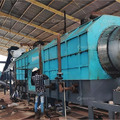
The growing demand for more sustainable farming practices has placed biochar at the forefront of agricultural innovation. This highly stable form of carbon, created through the pyrolysis of organic material, offers a host of benefits for soil health, crop productivity, and carbon sequestration. As…..
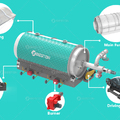
The batch pyrolysis machine plays a pivotal role in waste-to-energy systems, offering an efficient means to thermally decompose materials such as rubber, plastic, and biomass. For investors and operators in the waste processing sector, understanding the cost structure of such a unit is essential for…..
Beston Group
Key Factors to Assess Before Investing in a Thermal Desorption Unit
2025.04.16 05:17:48

As industries across the globe seek sustainable solutions to manage waste and reduce environmental impact, thermal desorption technology has become an essential tool in handling hazardous and contaminated materials. The process involves heating waste materials in a controlled environment to separate…..

The process of plastic pyrolysis has gained considerable attention as an effective method for converting plastic waste into valuable resources. Pyrolysis oil, derived from the thermal decomposition of plastics in the absence of oxygen, stands out as one of the primary by-products of this process. A…..

Waste tires are one of the most challenging waste streams to manage globally. With billions of tires discarded every year, their environmental impact is a growing concern. Tires are made from a complex mixture of rubber, steel, and other materials that are not easily biodegradable. When improperly…..
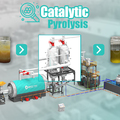
The pyrolysis of plastic waste is an innovative approach to recycling that transforms non-biodegradable materials into valuable by-products such as bio-oil, carbon black, and syngas. Of these, plastic pyrolysis oil has the potential to serve as a renewable energy source. However, the quality of the…..

The growing global demand for sustainable waste management solutions has highlighted the significance of pyrolysis technology. Among the various pyrolysis systems available, batch plastic pyrolysis machines stand out for their operational advantages in processing plastic waste into valuable products…..

Oil sludge, a by-product of oil extraction, refining, and transportation processes, is a hazardous waste material that poses significant environmental and health risks. Composed of a mixture of water, oil, and various contaminants, oil sludge has long been a challenge for industries seeking to…..

The conversion of forest waste into biochar has gained significant attention in recent years, primarily due to its dual environmental and economic benefits. Biochar, a carbon-rich material produced through the pyrolysis of organic matter, offers a solution to multiple pressing issues, including…..

Sawdust, a byproduct of the woodworking and timber industry, has long been considered a waste material. However, through the process of pyrolysis, sawdust can be converted into valuable sawdust charcoal. This transformation not only addresses environmental concerns related to sawdust disposal but…..

Charcoal production is a centuries-old process that continues to play a significant role in various industries today. Wood serves as the primary feedstock for charcoal production, and its type has a profound influence on the final product's characteristics. Factors such as wood density, moisture…..

Polyethylene (PE) is one of the most widely used plastics, with applications ranging from packaging materials to household goods. Due to its extensive presence in both consumer products and waste streams, PE has become a key target for plastic recycling technologies. Among various recycling methods,…..

The livestock sector has long been under scrutiny for its substantial contribution to global greenhouse gas emissions, especially methane. With growing global pressure on industries to reduce their carbon footprint, the implementation of sustainable practices has become increasingly important. One…..

The disposal of end-of-life tyres poses a significant environmental challenge. However, advancements in tyre pyrolysis have enabled the conversion of scrap tyres into valuable products such as Tyre Pyrolysis Oil (TPO) and Tyre-Derived Fuel (TDF). These two derivatives serve distinct purposes and…..
Beston Group
Influence of Moisture Content in Oil Sludge on Pyrolysis Efficiency
2024.12.04 10:56:34

Managing oil sludge, a by-product of petroleum extraction and refining, has become increasingly critical due to its environmental and operational implications. Among available treatment technologies, pyrolysis has emerged as a leading solution for converting oil sludge into reusable resources. The…..

Biomass pyrolysis serves as an innovative solution for converting organic materials into valuable by-products such as biochar, syngas, and bio-oil. While wood and nutshells are both common feedstocks, their pyrolysis processes differ in terms of feedstock composition, thermal behavior, and yield…..

Forestry waste, including branches, leaves, and sawdust, is often left to decompose or burned in open pits, leading to various environmental challenges. These include air pollution, soil degradation, and the loss of potential resources. However, a sustainable and profitable solution exists in the…..

With increasing demand for sustainable solutions in waste management, pyrolysis technology has emerged as an effective means of converting waste into usable fuel. A pyrolysis plant processes various materials, including plastic and tyres, converting them into pyrolysis oil. While both plastic and…..

Tire pyrolysis oil, a byproduct of the tire pyrolysis plant, has gained significant attention due to its versatility and potential applications in various industries. As the demand for sustainable energy solutions grows, understanding the sales channels for tire pyrolysis oil becomes imperative for…..

The demand for eco-friendly alternatives in the tableware industry has surged in recent years, leading to increased interest in the pulp molding tableware machine. This advanced technology allows for the efficient production of biodegradable tableware from recycled paper and other cellulose fibers.…..
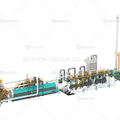
In the realm of waste management and resource recovery, continuous operation represents a pivotal advancement in pyrolysis technology. Unlike batch systems, a continuous pyrolysis plant offers ongoing processing, optimizing efficiency and output. This shift towards continuous operation is setting…..
Beston Group
Why Does the Plastic Pyrolysis Reactor Need to Be Corrosion Resistant?
2024.09.12 04:10:00

A plastic pyrolysis reactor plays a pivotal role in converting waste plastic into valuable byproducts, such as oil, gas, and carbon black. This process, known as pyrolysis, involves breaking down complex polymers through thermal decomposition at high temperatures in the absence of oxygen. Given the…..

The biochar industry has gained significant momentum in recent years, driven by its potential for carbon sequestration, soil enhancement, and sustainable waste management. For industries and entrepreneurs considering an investment in this burgeoning field, the choice of equipment is paramount. A…..
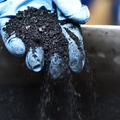
Recovered Carbon Black (rCB) has emerged as a valuable material with increasing demand across various industries. Derived from the tyre pyrolysis process, rCB offers a sustainable alternative to traditional carbon black, providing both economic and environmental benefits. This article explores why…..
Belépve többet láthatsz. Itt beléphetsz
